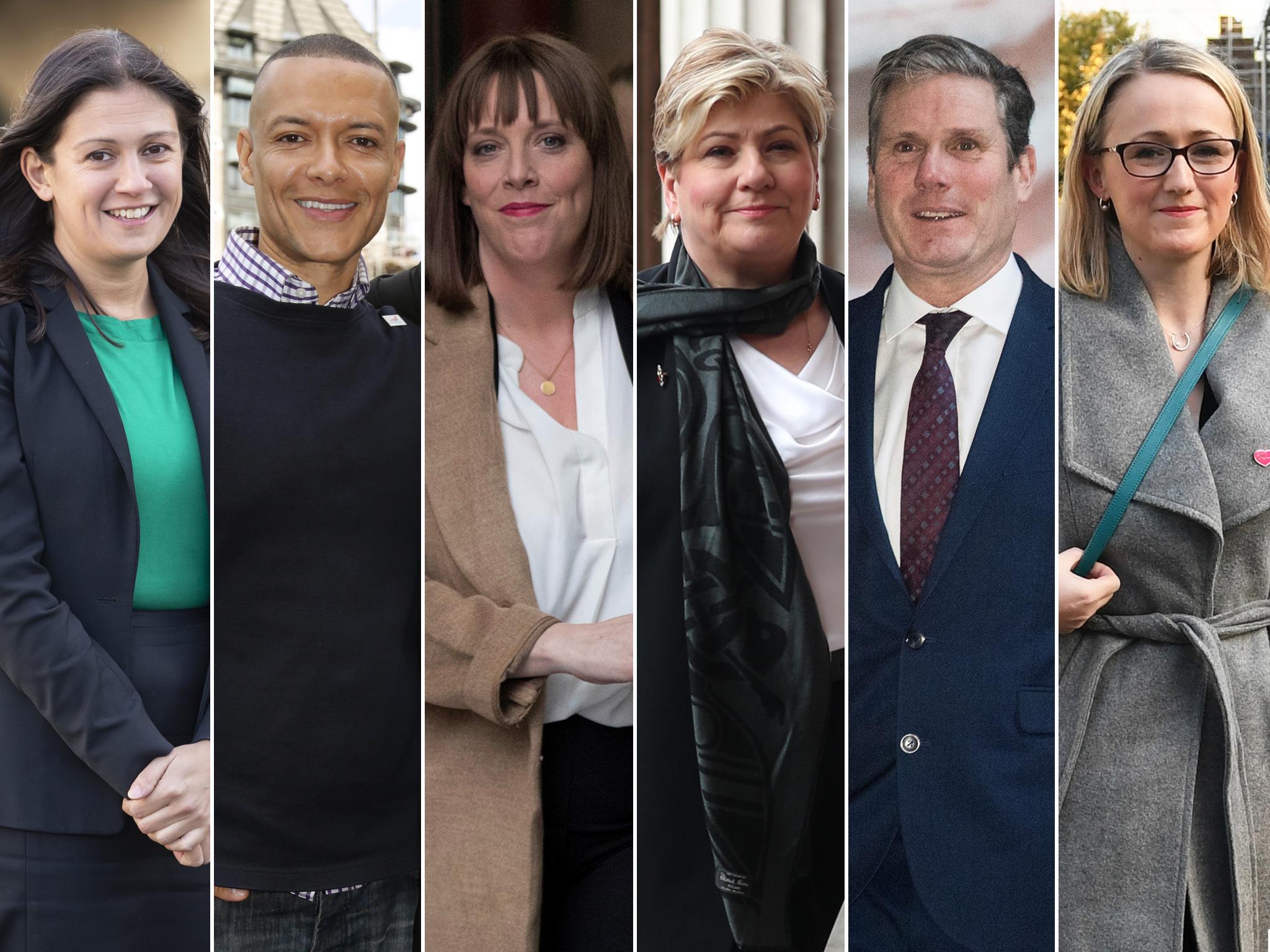Labour’s civil war isn’t between left and right, but populists and pluralists
The party can only move forward by ditching factionalism in favour of a common cause, says Andrew Grice


Labour’s leadership election is not going according to plan for the allies of Jeremy Corbyn. Given their iron grip on the party machine, we might have expected their favoured successor, Rebecca Long Bailey, to be so far out in front by now that no one could catch her.
Evidently, this is not the case. Long Bailey’s low profile since the general election, and doubts on the hard left about whether she is the right person to inherit Corbyn’s legacy, have helped Keir Starmer mount a strong challenge. As things stand, the contest now appears his to lose.
It’s still early days; at this point in 2015, Andy Burnham was the frontrunner. I expect a close-run race between Long Bailey and Starmer. Two more candidates, Jess Phillips and Lisa Nandy, have also cleared the first hurdle – nominations from 22 Labour MPs. Two others, Emily Thornberry and Clive Lewis, are struggling to do so by Monday’s deadline.
Starmer has been careful not to criticise Corbyn, to avoid alienating Labour members; many still revere the outgoing leader. If elected, Starmer would likely steer the party towards the centre left, shortening Corbyn’s long list of policies which many voters judged undeliverable; Long Bailey would keep most of them. While friends reject the “continuity Corbyn” label, her unwise “10 out of 10” score for his leadership will define her campaign.
Significantly, a Labour membership which twice elected Corbyn appears at least open to a change of direction because of the party’s crushing defeat last month. The only poll of members, by YouGov, showed Starmer ahead of Long Bailey.
MPs, including some who backed Corbyn, tell me some left-wing members are tempted by Starmer because he is seen as more competent and more likely to win a general election. As one put it: “The scale of our defeat could deliver it for Keir. Party members are on a journey. The question is whether it takes place quickly enough.” Another MP said: “Their heart might say Long Bailey, but their head is telling them Starmer.”
There are also signals that some Corbyn supporters now recognise the shortcomings of his regime, mentioning autocracy, centralisation, abuse of power, incompetence and lack of professionalism. One left-wing MP admitted: “Some people around Jeremy were more interested in retaining power in the party than winning it in the country.”
Some critics believe the Corbyn project was doomed never to win power because it was based on populism. A timely analysis along these lines comes in a new book, Warring Fictions by Chris Clarke, for the think tank Policy Network. He argues that the “civil war” since Corbyn’s election as leader has not been between leftists and centrists, or between radicals and moderates, but between populists and pluralists. He claims that left populists are obsessed with myths which prevent them winning power (unlike right-wing populists across the world, who are making life very hard for left-of-centre parties).
Clarke lists three such myths. “The Dark Knight” sees the political spectrum as moral; the left is virtuous, while those with different values are enemies and traitors. “The Puppet Master” claims an all-powerful elite controls society for personal gain, ensuring “the establishment” denies the “will of the people”. He claims “Dark Knight” attitudes to the Middle East and “Puppet Master” conspiracy theories combined to create Corbyn’s crisis over antisemitism.
The third myth, “The Golden Era”, sees “original socialism” as having been polluted by modernity and the drift to the right, undermining internationalism. Combined with “Puppet Master” suspicions of global elites, it produced Corbyn’s Euroscepticism and desire for socialism in one country.
Clarke concludes that left populism is incompatible with achieving socialism and winning power. If, however, Labour’s left populists slew the myths to which they have grown so attached, their party could become a pluralist one, without a lurch to the right or technocratic “Blairite” solutions, as Corbynistas fear. Some of the Labour candidates have already woken up to the truth of Clarke’s argument. Clive Lewis, a left-wing pluralist, rejects the “sectarianism and tribalism” of the Corbyn era, saying Labour must collaborate with other parties and come out for proportional representation; Lisa Nandy, meanwhile, has called for Labour to make “common cause” with others parties such as the Greens, though has stopped short of backing PR.
Yet will Labour itself come together behind a common cause when Corbyn’s successor is chosen in April? The omens are not good. Whoever wins the leadership, Labour will have to end the nasty factionalism of the past four years to have any chance of returning to power. The losing tribe, whether the populists or the pluralists, will have to accept the result rather than prolong the civil war.
Join our commenting forum
Join thought-provoking conversations, follow other Independent readers and see their replies
Comments